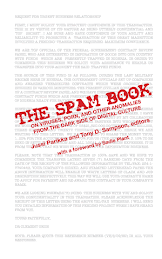
I happened to catch a glimpse of the recent X-factor contestants Heroes-group performance apparently in tribute of the UK Armed Forces – a performance now also available as a Christmas single which helps the charity of those injured in service for the country. While embedded in good intentions, it sent the shivers down my spine when I saw the performance, the aesthetics of glory in white meeting the troops in combat wear – and I am now talking about aesthetics in a similar manner as Benjamin and Kracauer when analyzing mass culture of their age. The grandiose, the over-the-top versioning of the slightly more alternative David Bowie song, now with family relations, brothers and sisters but perceived through the army colours and a primary social bond created by the military service turned in my eyes and ears into a quasi-fascist performance of celebration of blood and soil, of sacrifice, and a militarization of the public culture as well (a continuation of the town marches to remember those who did not return). As said, while embedded in good intentions it’s nature of spectacle works much beyond the particular function of supporting those wounded; it fits in perfectly with the wider militarization of the public sphere of the UK evidenced in the events of past weeks.
During the student resistance marches and demonstrations – public spectacles of a different sort – a range of incidents involving police violence from kettling techniques against school kids to use of violence and horses charged into crowds as well as earlier reports about the use of unmanned drones (similar as used in battlefields eg. in Afghanistan) demonstrate the inherent link neoliberal governmentality has with violence. As a regime, neoliberal use of power is very much linked to “soft power” which for example in the current atmosphere of cuts has been demonstrated by the conceptual power of suddenly turning arts, humanities and social sciences into private investments (through the withdrawal of all teaching grants to those subjects) instead of public goods grounding democracy, critical society and those values which on paper all parties are in support of. Yet, through the effective, violent and cruel policing techniques a very different kind of Britain is emerging – one of sci-fi dimensions where kids are according to reports now emerging being beaten and indeed governed through such dubious, torture-like methods like kettling (hours without food, in freezing cold, without toilet), surveilled by drones, and student protests is being tackled with measures usually reserved for, well, slightly more dangerous people. The affective reactions that the cuts are starting to raise are being managed with further affective measures – as so well described by Laurie Penny in her New Statesman report from the inside of the kettle of 24th November:
“This is the most important part of a kettle, when it's gone on for too long and you're cold and frightened and just want to go home. Trap people in the open with no water or toilets or space to sit down and it takes a shockingly short time to reduce ordinary kids to a state of primitive physical need. This is savage enough when it's done on a warm summer day to people who thought to bring blankets, food and first aid. It's unspeakably cruel when it's done on the coldest night of the year, in sub-zero temperatures, to minors, some of whom don't even have a jumper.”
In other reports, there are also questions raised about what triggered the use of kettling. Apparently the official line is that some people attacked a police van, whereas it seems that the van was already abandoned and potentially even not in use. (See this speculation as well.)
The aesthetics of sacrifice and military power intertwined into aesthetics of sacrifice and glorifying blood was a key part of the earlier political sphere of 20th century Europe. Now, with neoliberalism, we are seeing as scary patterns rise their head as well and an increasing number of good cultural theory is picking up on this link between war and aesthetics – again, aesthetics understood in the broad sense of creation of perceptions concerning social relations. The conceptual arsenal mobilized during the election effectively tried to capture –as neoliberalism has done – various “good” terms such as freedom, responsibility and, of course, Big Society, which now, as someone I believe on Twitter during the first demonstrations on 10th of November expressed it is turning against itself: this is what happens when the big society turn up at once (apologies for not being able to make a proper reference to whoever tweeted that phrase). Indeed, hopefully these events are able to spark something of a different kind of a perception of the possibility of social relations for students, school kids etc. And hopefully something less cheesy as the militarized X-Factor version.








I was dreading watching this, especially as I have recently been revisiting Bowie's Berlin albums, and Heroes in particular. It seemed to me the song was truly futuristic, of our time more than when it was recorded.
ReplyDeleteThis X Factor version reverses that, and casts heroes as a retro anthem. But despite that, this version is so excessive that I find myself loving it.
It strongly reminds me of the (extraordinary) rendition of Bowie's I Have Not Been To Oxford Town in the Paul Verhoeven sci-fi cum satire Starship Troopers. ("All's well/Twenty first century dies") The heavy-handed fascist future of that film seems to be coming true, as evidenced here.
Also, the news that ex-soldiers are to be fast tracked as teachers, without the need for a formal degree. This evokes the limbless, warmongering teachers in Verhoven's film.
So thanks for pointing this clip out, it is my track of the year, no contest!
And of course, Bowie had himself that 1970s flirting with fascism - cannot remember the details now, but remember reading about it. Anyhow, indeed - the weird link from X-factor to...things otherwise horrifying... ;) Thanks for the comment!
ReplyDeleteI haven't seen the performance, but it sounds tasteless. A mere reaffirmation of the values society has taken on. I think it is appalling how they take their audience for fools, but apparently it seems to be very profitable. It is disgusting how every single aspect of our lives is interwoven into neoliberal structures.
ReplyDeleteWith the protest situation on top we have finally arrived in our dystopia. I hope we will be able to get out of it again.
thanks atrzak for the comment! indeed, what we find entertaining...is never innocently just fun!
ReplyDelete